FACT: your dog’s vaccines can protect for 15 years or more.
Yes,15 years. That means, after the first vaccine, he’s probably protected for life!
Vaccinating over and over doesn’t make him “more immune,” so why are you putting your dog at risk every year?
Over-vaccination is a huge problem, so it pays to know.
Despite what the vet says, your dog probably doesn’t need that annual booster. So, before making an appointment:
Click here to see which vaccines your dog actually needs>>
Dr. Karen Becker Interviews Dr. Schultz
January 2014
We have updated our web page to coincide with the latest information on vaccines for our puppy people. Tragically we are hearing more and more dogs (mutts and purebreds) reacting to vaccines, (or their extenders) and or reacting to being over vaccinated needlessly year after year after year. We have even seen dogs in Veterinary clinics start to froth and the mouth and seizure in the office while waiting to pay their bill !
*IF your puppy acts sickly after a vaccine, really stop and consider the pros and cons of revaccinating (we wouldn’t).

There is a vaccine for leptospirosis, but I personally don’t recommend it.
It is a relatively weak bacterial vaccine that is short acting and can’t protect against all 20 serovar of the Leptospira bacteria. In fact, it is actually ineffective for the current serovar that is causing the majority of infections in my area today.
The leptospirosis vaccine is a bacterin (a vaccine made from killed bacteria), which in and of itself won’t prompt an immune response to make antibodies, so a powerful adjuvant (usually a heavy metal such as aluminum or mercury, aka thimerosal) is added that elicits a strong immune system response. Because of this, it also carries a significantly greater risk for adverse reactions. Information has recently emerged that the vaccine can actually cause the disease in dogs, and it has also been linked to early kidney failure in older animals.
Leptospirosis symptoms are pretty easy for owners to spot and receive treatment for. Most common antibiotics will kill leptospira such as ordinary penicillin, tetracycline and erythromycin all work well. So owners have to consider if the 1/1000 chance (please confirm stats for your area) of their dog catching Lepto, is worth the risk of yearly exposing their dog to life threatening toxins being injected into their dogs, causing lifelong health problems.
Over the years many pet owners and veterinarians have become concerned about the potentially harmful practice of annual re-vaccination. Issues of concern such as dogs developing immune disease, such as but not limited to: Autoimmune Haemolytic Anaemia (AIHA), Cancer and Chronic disease in canines is on the increase. We hope by providing the best and most up to date information that our ‘puppy people’ can make educated choices for the safety and health of their pets and not rely on a Vet. Your pups’ health and future health is in YOUR hands. Don’t blame the breeder, blame the Vet !$$

Dogs do need initial series of vaccines. This is well documented and uncontested. When to vaccinate is the big debate and Dr. Schultz and Dr.Dodds have strong opinions, the world is starting to listen to. What is also known is that no dog needs yearly vaccines.
We have chosen to vaccinate our “breeding” adults twice for for DA2MP. Our adults that cross the border will get Rabies every 3 years as this is the law. As of 2015 we hope this will be every 7 years as per latest manufacturer’s recommendations.
Our Poodles no longer receive any vaccines (including rabies) when they turn 6 years of age.
OUR VACCINATING RULES:
No rabies until 6 months of age !!
No lepto or corona ever
Series of 3 puppy shots, 3 – 4 weeks apart the first year, a booster a year later and then that is it for 3 years.
NO vaccinating for Rabies and booster at the same time.
NO YEARLY VACCINES !!
So many people are over vaccinating and it is really hard on our puppy’s health
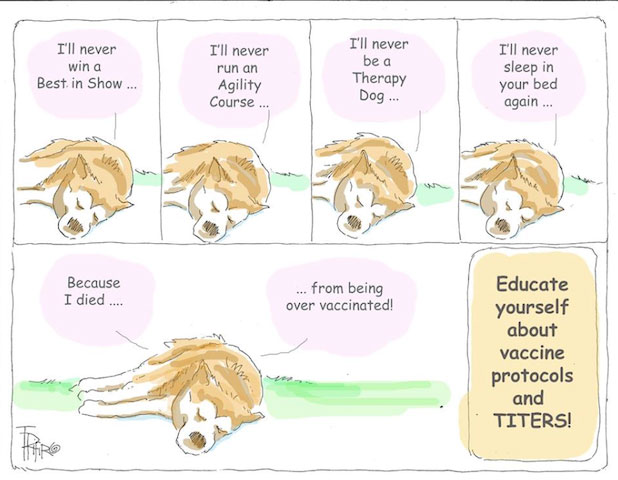
Once our mom’s have retired, they no longer receive vaccines, or even Rabies for the duration of their lives. Our Poodles do not receive Flea, Tick or Heartworm medication as we do not believe in subjecting our Poodles to a toxic soup of chemicals and harming them or their pups.
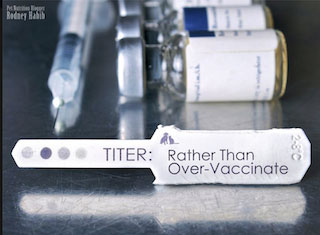
Our vet charges $50.00 for Titres.
BUT, this is my belief and you will have to read current information and make an informed choice for yourself and your Poodle. Your Vet works for you and is a salesperson with products to sell, it is up to you the owner to make informed choices for your pet’s health !!
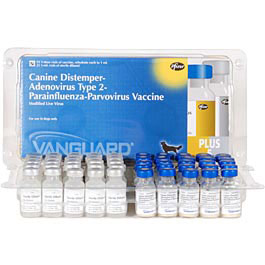
Vanguard DA2MP
Vaccinates against: Distemper, Adenovirus Type 2 (gives cross immunity to Adenovirus Type 1 Hepatitis), Parainfluenza, (MLV) Parvo
****Our pups go home with one light Parvo distemper vaccine before 8 weeks only because most clients are not comfortable with puppies leaving with out at least one set of shots.
Even though they do have maternal antibody protection, until they would normally receive their first vaccine at or around 9 weeks of age. They will need a series of 2 more vaccinations administered 3 – 4 weeks apart and a rabies at 5 to 6 months of age.
INFORMATION ABOUT VACCINES:
VACCINATION NEWSFLASH – Dr. Ihor Basko

I would like to make you aware that all 27 veterinary schools in North America are in the process of changing their protocols for vaccinating dogs and cats. Some of this information will present an ethical and economic challenge to vets and there will be skeptics. Some organizations have come up with a political compromise suggesting vaccinations every 3 years to appease those who fear loss of income vs those concerned about potential side effects. Politics, traditions, or the doctor’s economic well-being should not be a factor in medical decision.
NEW PRINCIPLES OF IMMUNOLOGY
“Dogs and cats” immune systems mature fully at six months. If a modified live virus vaccine is given after six months of age, it produces immunity, which is good for the life of the pet (i.e.: canine distemper, parvo, feline distemper). If another MLV vaccine is given a year later, the antibodies from the first vaccine neutralize the antigens of the second vaccine and there is little or no effect. The titer is not “boosted” nor are memory cells induced. Not only are annual boosters for parvo and distemper unnecessary they subject the pet to potential risks of allergic reactions and immune-mediated haemolytic anemia.
There is no scientific documentation to back up label claims for annual administration of MLV vaccines. Puppies receive antibodies through their mother’s milk. This natural protection can last 8-14 weeks. Puppies and kittens should NOT be vaccinated at LESS than eight weeks. Maternal immunity will neutralize the vaccine and little protection (0-38%) will be produced.
Vaccination at six weeks will, however, delay the timing of the first highly effective vaccine. Vaccinations given two weeks apart suppress rather than stimulate the immune system. A series of vaccinations is recommended given starting at eight-nine weeks and given three to four weeks apart up to 16 weeks of age. Another vaccination given sometime after six months of age (but usually at one year of age) will provide lifetime immunity.
Most Leptospirosis strains (there are about 200) do not cause the Leptospirosis disease, and of the seven clinically important strains only four ~ L. icterohaemorrhagiae, L. canicola, L. grippotyphosa, and L. pomona serovars ~ are found in today’s vaccines. So, exposure risk, depends upon which serovars of Lepto have been documented to cause clinical leptospirosis in the area where you live. You can call the county health department or local animal control and ask.
Over the years many pet owners and veterinarians have become concerned about the potentially harmful practice of annual re-vaccination. As immune disease such as but not limited to: Autoimmune Haemolytic Anaemia (AIHA), Cancer and Chronic Disease in canines increase. As a result of these facts, new studies on the duration of immunity are being done.
CANINE VACCINATION PROTOCOL – 2007 – MINIMAL VACCINE USE
W. Jean Dodds, DVM
HEMOPET
938 Stanford Street
Santa Monica, CA 90403
310-828-4804; Fax 310-828-8251
e-mail: hemopet@hotmail.com
Note: The following vaccine protocol is offered for those dogs where minimal vaccinations are advisable or desirable. The schedule is one most breeders will recommend and should not interpreted to mean that other protocols recommended by a veterinarian would be less satisfactory. It’s a matter of professional judgment and choice. Puppy’s are growing and developing and it is NOT advisable to bombard their systems with multiple vaccines, heart worm medications, topical toxins and expect the puppy to not have long term adverse effects such as AIHA, Cancer and or GI upsets. BE INFORMED
Age of Pups & Vaccine Type
9 – 10 weeks : Distemper + Parvovirus, MLV (e.g. Intervet Progard Puppy DPV)
14 weeks: Same as above
16 -18 weeks (optional): Same as above (optional)
20 weeks or older: Rabies
1 year: Distemper + Parvovirus, MLV
1 year: Rabies, killed 3-year product (give 3-4 weeks apart from distemper/parvovirus booster)
Perform vaccine antibody titers for distemper and parvovirus every three years thereafter, if not giving yearly vaccines or more often, if desired. Vaccinate for rabies virus according to the law and of course manufacturers directions. You will want to get the vaccination renewal date on the Rabies certificate to indicate 3 years as per manufacturer’s directions.
Dog Vaccinations Be Informed
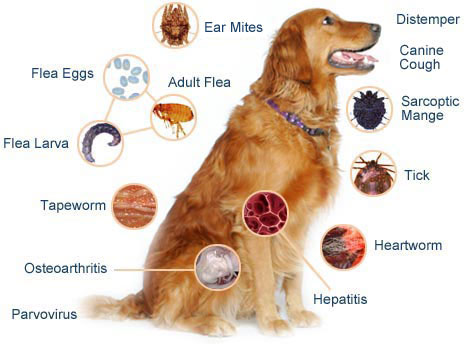
DHLPPC:
This is a combo vaccination that covers numerous diseases with one injection. What do all those letters stand for?
D = Distemper:
Distemper is a nasty virus that is highly contagious, occurs world wide, and at one time was the leading cause of death in puppies. Young puppies are more susceptible to the virus then adult dogs. You may see signs of an upper respiratory infection with a high fever, the dog may also have neurological signs. This disease is often fatal.
H = Hepatitis or Adenovirus-2:
This is spread by contact with the urine and feces of infected animals. The virus causes liver and kidney damage, animals that survive may have chronic illness. Symptoms include but are not limited to: fever, lethargy, anorexia, abdominal pain, and bloody diarrhea.
L = Leptospirosis:
This disease affects the liver and kidneys and is deadly. Animals with this disease are contagious to other animals and humans. A positive dog should be isolated and the caregiver should wear protective clothing and gloves. The disease is spread through contact with urine of infected animals. Dogs with leptospirosis may show signs of lethargy, dehydration, jaundice, and fever.
P = Parainfluenza:
This is a virus that causes an upper respiratory infection. Dogs usually contract the disease through contact with nasal secretions of infected dogs.
P = Parvovirus:
This virus attacks the intestinal tract and causes severe vomiting and diarrhea. Parvo is highly contagious, dogs contract the virus through contact with an infected animals stools. Without treatment dogs become dehydrated and weak and often die. This virus is very common and puppies who are not properly vaccinated are often afflicted. Rottweilers and Doberman Pinschers seem to be at greater risk for parvo.
C = Corona virus:
This virus attacks the intestinal system similar to parvovirus. Infected dogs suffer from vomiting and diarrhea and dehydration. Keep your pet vaccinated and your yard clean to protect your pet.
L = lyme Disease:
Some of the symptoms and pathological changes associated with Lyme disease are very similar to those found in autoimmune disease. a small portion of infected dogs do develop sore, painful joints weeks or months after infection. Some of these dogs run low-grade fevers. The signs you read about in humans with Lyme almost never occur in pets.
Simple arthritis is usually constant in the joints it affects. But lameness due to Lyme disease often shifts from leg to leg. These swollen joints are usually hot and painful and occasionally the lymph nodes at the base of the legs may be slightly enlarged as well.
The front leg are most commonly affected. When they are, it is the lymph node on the shoulder of that leg that may be enlarged. Many of the sick dogs are depressed. They may yelp when these joints are pressed and be quite reluctant to walk. When they do walk, they walk with a stiff shuffling gait and an arched back because of the pain.
Prevention is key Flea and Tick prevention options and if your dog is exposed to ticks then perhaps yearly testing might also be an option for you to consider.
VIDEO INTERVIEWS WITH VETS ABOUT VACCINATIONS
W. Jean Dodds, DVM
HEMOPET
938 Stanford Street
Santa Monica, CA 90403
310-828-4804; Fax 310-828-8251
e-mail: hemopet@hotmail.com
Dr. Schultz interviewed on Rabies Vaccination
Rabies Vaccines 1 year or 3 year
Dr. Schultz interviewed on Vaccinations and Titres
While researching the Standard Poodle and other dog breeds readers will undoubtedly come across information on breeders web sites about vaccination protocols for their puppies. Most breeders are advocating “limited” vaccination, some have gone to no vaccines what so ever, some are doing titres to test the need for revaccination some are dividing up vaccinations and few are still doing what they did 20 years ago. Unanimously breeders all agree Rabies if given, should be given 2-3 weeks apart from regular vaccinations.
This is because vaccines can cause changes in the immune system of dogs that might lead to life-threatening immune-mediated diseases. The breeders who are advocating limited vaccines are not unique in their stance on vaccines.
Breeders of other breeds, Weimaraner, Vizsla, Labs and Toy breeds, etc.. are also advocating limited vaccine as are Vets, breeders and owners become aware that vaccination protocols are no longer considered a “one size fits all” program.
Breeder’s have to view Vaccines and how they will effect their precious puppies, short and long term. Some Breeders are even including vaccine protocols, in their purchase contracts to protect their pups from Vets who are so routed in routine and income that they don’t have the pup’s best interest at heart.
Limited vaccination can be interpreted many different ways but what you feel comfortable with as a breeder and as an owner is paramount. There are many, many sites on the internet both pro-vaccine and anti-vaccine. So sort through the information carefully. Many people believe “WRONGLY” that legally their dog is required to have annual rabies vaccination. In Ontario the law states : a dog 3 months of age or over must be immunized against rabies, and then reimmunized (i.e. given a booster) by the date specified in the immunization certificate that is issued at the time the vaccine is administered.
Basically the dog must be re-immunized when the Vet states on the certificate so make sure your Vet writes down next rabies due in 3 years time. This information is available online on the Health Protection and Promotion Act and R.R.O. 1990, REGULATION 567
Vaccinosis is a disease syndrome that is triggered by vaccination. Vaccinosis is becoming rampant in the dog population. Examples of vaccinosis include autoimmune diseases, irritable bowel disorders, lupus and pemphigus; hypothyroidism in dogs; eosinophilic skin disorders, hyperthyroidism asthma, chronic skin disease or allergic dermatitis in dogs. Many times people assume a dog has a food allergy when in fact they are reacting to Vaccines.
These diseases are identified as vaccine-related conditions for two reasons:
1. The onset of the symptoms is associated with the date of vaccination in many cases. Usually, two weeks to one month following a vaccination,
symptoms such as skin problems, malaise, muscle weakness, diarrhea or asthma.
2. Patients seem respond and get better when treated for Vaccinosis.
Homeopathic remedies are often effective on vaccine-related problems. Some of the more common vaccinosis remedies used are thuja occidentalis, silicea, sulphur, malandrinum, mezureum and lyssin.
Lepto and Corona Vaccines were said to be the vaccines to be cautious of, because they caused the most sever reactions, including seizures. Manufacturers assured the medical community that the “extender” used in the vaccines was changed and the extender would not cause allergic reactions. As a result of this change, Vets felt reassured by administering these new improved vaccines however the adverse reactions are still happening. Read about Vaccinosis symptoms
Dr. Ron Schultz, Dr. Richard Ford, and many other veterinarians have stated they don’t recommend the Lepto vaccines. The reactivity associated with Lepto vaccine can make a patient very itchy for three to four years and most agree, the vaccine is incapable of protecting a dog against Leptospira and worse yet, if the dog were to develop a Leptospira infection to one of the serovars transmissible to man, the owner would be at greater risk of suffering a Leptospira infection because his/her dog was vaccinated !
Dr. Ron Schultz only recommends vaccination one time at 15 weeks of age for dogs and to only distemper, adenovirus and parvovirus. It is proven that IgE hypersensitivity results and the animals can suffer much greater allergies as a result of being vaccinated. Not only this, the thyroid is suppressed as a result of vaccinations for at least 45 days following vaccination.
Other examples of vaccinosis cases are seen after receiving the Rabies Vaccination. Symptoms are aggressive or fearful behavior problems, reverse sneezing and or seizure activity. Since some communities by law require a Rabies vaccine (make sure your Vet writes that the next shot is in 3 years !!) It is reccomended by some homepath Vets that by administering a dose of 30C lyssin (a homeopathic remedy) seems to decrease the long-term side-effects of vaccination, if given at the time of the Rabies vaccination.
Lepto is also said to be on the rise, so it is important to consult with your vet to weigh the pro’s and con’s of vaccinations. IF you are vaccinating, make sure to book your appointment first thing in the morning and ALWAYS Monday to Thursday so that if your pet does have an immediate allergic reaction, your clinic will still be open to handle the emergency.
Dr. W. Jean Dodds DVM takes a more balanced approach with breeds that require reduced or limited vaccines. As science progresses and studies are conducted, change is inevitable. Please read Dr. Dodds Changing Vaccine Protocols (below). Your vet may tell you “this is the way it is always been done OR in 50 years of practice I’ve never seen a reaction OR we always give rabies and a combination shot at the same time OR other Poodles I see have never had a reaction, etc…” However if your Veterinarian is like mine, they will know and/or will listen to you as informed owner of a poodle, that some dogs may have a reaction to vaccines and advocate caution when vaccinating. Why this is can probably be as a result of environmental toxins already comprimising our dogs, or vaccination extenders used in the vaccines.
We owe it to our dogs to educate ourselves about what is happening within our breed, to investigate, question and question again and than make our own informed decisions as to how “limited” we wish to be when it comes to vaccinating our dogs.
~ Bijou Poodles will continually educate ourselves and update this site, as current information and options become available to us ~
Bijou Poodle Puppy People will follow these Precautions and agree;
TO NEVER VACCINATE THEIR PUPPY WITH A RABIES VACCINE IN COMBINATION WITH ANY OTHER VACCINE.
TO NEVER VACCINATE THEIR PUPPY WITH A RABIES VACCINE WITHIN ONE MONTH OF ANY OTHER VACCINE.
TO NEVER VACCINATE FOR RABIES OR WITH ANY OTHER VACCINE WITHIN A MONTH OF THE PUPPY HAVING ANY KIND OF SURGICAL PROCEDURE, OR IF THERE IS EVEN THE SLIGHTEST QUESTION THAT THE PUPPY MAY BE ILL.
Bijou Poodle Puppy People are aware that some dogs may have adverse reactions, including death, from some Heartworm and Lyme Disease medications.
They are also aware that Heartworm and Lyme Disease medication is to be administered in accordance with veterinary guidelines only in areas of the world where these diseases are considered a serious threat to the well being of the Puppy. With that in mind, both diseases if untreated are known to be a death sentence to affected dogs. Puppy owners must make the best and healthiest choices for their puppy.
Immunological Effects of Vaccines
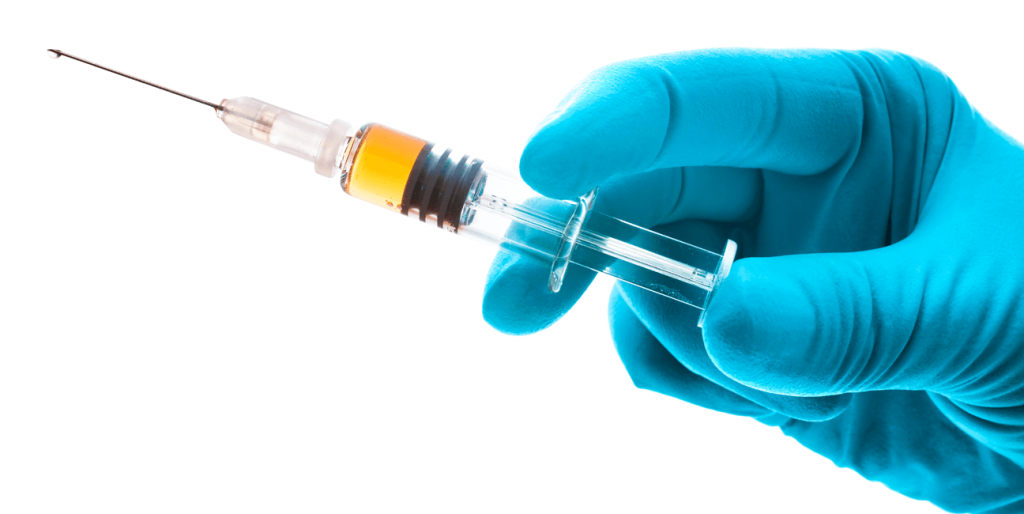
In the 1980’s we were vaccinating our puppies at 6 weeks of age and every 2 weeks of age until 16 weeks of age. The buyer would then vaccinate at 16 weeks of age for the rabies. My Vet informed me that I was “over vaccinating”. I was amazed that there could be such a thing as overdoing a good thing. I was wrong. The stress I was putting on my little ones was huge. Not only that but totally not needed. Then I found out more about the Rabies Vaccination. What I found out after reading the manufacturer label was it is a 3-year protection, meaning it is not to be given more than once every three years after initial 2 doses !
Here my pups were routinely vaccinated every year, plus given a booster and then don’t forget that heart worm medication and flea medication. Wow that is really getting the poor puppy’s body to work overtime especially during key growing periods !
Due to recent studies and also health related problems from Vaccinosis (seizures to name one) especially in Weimaraners, we ask that our puppy buyers..or anyone concerned about their puppies health, to really research vaccination options, prior to following any vaccination protocol. Remember the Vet you choose, is working “FOR” you. You are “their” employer. You have the ability to choose what is best for your puppy and to find a vet that will work with you, even if it means less income for the vet.
NEW PRINCIPLES OF IMMUNOLOGY
“Dogs immune systems mature fully at 6 months. If a modified live virus vaccine is given after 6 months of age, it produces an immunity which is good for the life of the pet (ie: canine distemper, parvo, feline distemper). If another MLV vaccine is given a year later, the antibodies from the first vaccine neutralize the antigens of the second vaccine and there is little or no effect. The titer (measurement for amount of antibodies) is not “boosted” nor are more memory cells induced.
“Not only are annual boosters for parvo and distemper unnecessary, they subject the pet to potential risks of allergic reactions and immune-mediated hemolytic anemia.”
“There is no scientific documentation to back up label claims for annual administration of MLV vaccines”
Puppies receive antibodies through their mothers milk. This natural protection can last 8-14 weeks. Maternal immunity will neutralize the vaccine and little protection (0-38%) will be produced if vaccinated before 7 weeks of age. Vaccination at 6 weeks will, however, delay the timing of the first highly effective vaccine. Vaccinations given 2 weeks apart suppress rather than stimulate the immune system. A series of vaccinations is given starting at 7-8 weeks and given 3-4 weeks apart up to 16 weeks of age. Another vaccination given sometime after 6 months of age (usually at 1 year 4 mo) will provide lifetime immunity.
New Idea is a 3 year protection:
…
Phizer Defensor 1 (one year protection) and Defensor 3 (3 year protection)
Rabies :
Rabies is a virus that affects the nervous system and is always fatal. There is no known cure for rabies, to confirm a case the brain tissue must be examined. In the United States raccoons, skunks, bats, foxes, and coyotes are the main wild animal hosts for the illness. Symptoms generally include behavior change, difficulty swallowing, hypersalivation, depression – stupor, and hind limp paralysis. The disease is spread through the saliva of infected animals and can be transmitted through a bite or an open wound. Vaccinated pets who are exposed to rabies should be re-vaccinated and observed for 90 days, un vaccinated pets exposed to rabies should be euthanized or kept isolated for 6 months. Keep all pets current on their rabies vaccinations – this will protect humans and animals.
The latest Rabies vaccination protocol is that after a series of two vaccinations the dog will only need to be revaccinated every 3 years depending on the Rabies Brand of Vaccination. Ask your vet if you can read the label if you are unsure.
Ontario Canada has had a confirmed case of Rabies (via bite from an infected skunk to border collie pups) in January 2008. A rabies vaccination is a must for crossing the border. You need proof that your dog was vaccinated against rabies by a licensed veterinarian. A signed, dated certificate must show the vaccine was given at least 30 days prior to entering the U.S. The certificate must also list you as the owner and contain a clear, detailed description of the dog, outlining his colour, breed, sex, age and specific markings.
As well, information on the brand of rabies vaccine, the vaccine lot number, and the expiry date of the vaccine must be written on the certificate. In adult dogs, rabies vaccinations are valid for either one or three years. If an expiry date is not indicated on the certificate, the vaccination is assumed to be valid for one year after administration so make sure your Vet indicates the next booster is not due for 3 years !
Puppies younger than three months old when crossing the border do not need to be vaccinated against rabies. If you are travelling with a young puppy that’s large or looks mature, you should carry proof of its age when entering the U.S. A health certificate or vaccine certificate (not rabies) that is dated and includes the pups age should be adequate for this purpose.
Bordetella:
This is an upper respiratory infection also known as kennel cough. This infection is usually not fatal but is a pain to get rid of. In an otherwise healthy dog will clear up all on it’s own just like the human cold and just like the human flu virus there are strains of bordetella. The infection can spread quickly through boarding and grooming facilities and any place dogs congregate. The vaccination can be in the form of a nasal spray or injection. We think it makes most sense to give it intranasally at the point of exposure. The injection form will need a booster in one month. Your veterinarian can help you decide if this vaccination is necessary for your dog. If you are bording your dog they usually do require this vaccination.
Lyme Disease:
This is a tick borne illness. If you live in a wooded area and have a large number of positive Lyme disease cases in your area you may wish to consult with your Vet about this vaccination. The deer tick must stay attached to your dog for one to two days in order to transmit the illness, so checking your dog daily for ticks will help prevent Lyme disease as well as using a good tick preventative Advantix or Revolution.
Symptoms include but are not limited to: fever, swollen lymph nodes, and loss of appetite. Talk to your veterinarian if you think your dog should be vaccinated against Lyme disease with the Lymevax vaccine. Great web page about Lyme Disease
More Information about Flea and Tick Medication Options
Giardiasis
Giardiasis is a parasite that lives in the intestines and can be passed into the environment through the stools of infected animals (Rabbits, Mice, and other dog’s feces). Dogs become infected with giardia by drinking contaminated water. Humans can also be infected. At risk dogs would be those who live primarily outdoors, hunting dogs, or dogs who may come in contact with ponds or creeks.
If you feel your pet has Giardia, then talk to your veterinarian about vaccinating for giardia. This vaccine needs boosted 3 weeks after the initial dose then given annually. Giardiavax is not a “prevention” but is used to help clear up Giardia in an infected dog
Giardia causes its unpleasant effects on the body not by invading the tissues, but simply by being in the way. It multiplies to the point where it sort of paves the lining of the intestine and blocks normal digestion (malabsorption). This causes only partially digested food to get lower in the digestive tract than it should, causing diarrhea. Tests for Giardiasis are useless because it can’t always be detected. It is better just to treat for Giardiasis if you suspect it. Safe-Guard® Canine Dewormer (contains 22.2% Fenbendazole) used for 3 days will take care of Giardiasis.
Coccidiosis
Coccidiosis is an intestinal disease that affects several different animal species including canines and humans. Coccidia is one of the most prevalent protozoal infections in North American animals, second only to giardia. Clinical signs of coccidiosis usually are present or shortly following stress such as weather changes; weaning; overcrowding; long automobile or plane rides; relocation to a new home and new owners; and/or unsanitary conditions. Symptoms or signs of coccidiosis will depend on the state of the disease at the time of observation. In general, coccidiosis affects the intestinal tract and symptoms are associated with it. In mild cases, only a watery diarrhea may be present, and if blood is present in the feces, it is only in small amounts.
Severely affected animals may have a thin, watery feces with considerable amounts of intestinal mucosa and blood. Straining usually is evident, rapid dehydration, weight loss and anorexia (off feed) also may be clinically visible.
DEWORMERS:
Safe-Guard
The active ingredient in Safe-Guard®, fenbendazole, (Panacur) has been shown, in controlled laboratory studies and clinical field trials, to have outstanding efficacy against the major intestinal worms that infect dogs, namely:
Tapeworms ( Taenia pisiformis )
Roundworms ( Toxocara canis, Toxascaris leonina )
Hookworms ( Ancylostoma caninum, Uncinaria stenocephala )
Whipworms ( Trichuris vulpis )
Strongid T (more information here is a medication used to treat and control parasites such as:
Hookworms
Roundworms
Pinworms
The medicine contains the active ingredient pyrantel pamoate (Nemex®) Must be administered two days in a row and repeated in 10 days.
Blue-Green Algae:
Blue-Green Algae kills dogs that drink or contact the algae (Cyanobacteria). It is found in stagnant water and there is no cure. Symptoms of Blue Green Algae Toxicity include: nausea, bloody diarrhea, pale gums, skin or eye irritations, convulsions and, in severe cases, even death within minutes. When the nervous system is involved, dogs will develop muscle tremors, labored breathing and difficulty moving. Blue Green Algae toxicity is often misdiagnosed as heart problems or heat stroke. There are lots of photos and videos online so make sure to learn about this deadly toxin.
Campylobacter:
Campylobacter is a form of food poison. It can be passed from people to dogs and then back to people again. It is also referred to as “Show Crud” as it is very common in show dogs. Symptoms are Diarrhea cause can be contaminated Fecal matter, non-chlorinated water, such as streams, ponds or puddles, food poisoning from food or from a human who has food poison, even a light case. Drugs for treatment are Tetracycline, Erythromycin and some have had success using Cephalexin.